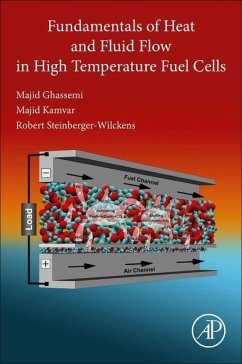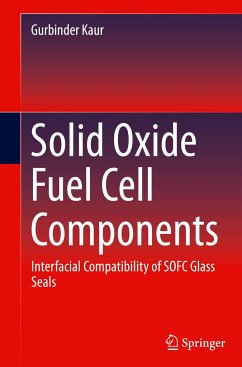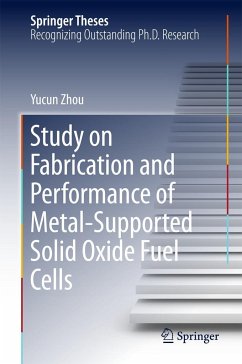
Models for Solid Oxide Fuel Cell Systems
Exploitation of Models Hierarchy for Industrial Design of Control and Diagnosis Strategies
Versandkostenfrei!
Versandfertig in 6-10 Tagen
76,99 €
inkl. MwSt.
Weitere Ausgaben:

PAYBACK Punkte
38 °P sammeln!
This book presents methodologies suitable for the optimal design of control and diagnosis strategies for Solid Oxide Fuel Cell (SOFC) systems. One key feature of the methodologies presented is the use of modeling tools with an ideal balance between accuracy and computational burden. Particular emphasis is given to the useful combination of models within a hierarchical framework to reduce the experimental efforts required for characterization and testing. Such tools are proven to be highly effective for SOFC systems destined for both residential and transportation applications. Throughout the b...
This book presents methodologies suitable for the optimal design of control and diagnosis strategies for Solid Oxide Fuel Cell (SOFC) systems. One key feature of the methodologies presented is the use of modeling tools with an ideal balance between accuracy and computational burden. Particular emphasis is given to the useful combination of models within a hierarchical framework to reduce the experimental efforts required for characterization and testing. Such tools are proven to be highly effective for SOFC systems destined for both residential and transportation applications. Throughout the book, optimization is always conceived in such a way so as to allow the SOFC systems to work efficiently while guaranteeing safe thermal operation, as well as an extended lifetime. This book is aimed at scientists and engineers involved in the design of marketable SOFC systems. It gathers the knowledge and experience derived from other research and industry practice for which control and diagnosis have proven to be the main keys to success and market penetration.















